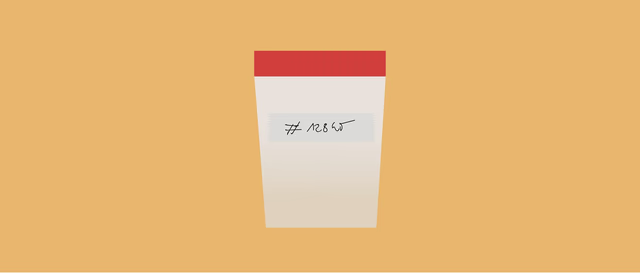
How many times should you pee a day?
Peer reviewed by Dr Sarah Jarvis MBE, FRCGPLast updated by Abi MillarLast updated 22 Feb 2019
It's a question many of us have wondered about at some point, although maybe haven't expressed out loud: how many times should you pee a day?
Whether you're someone who makes jokes about your 'tiny bladder' (and frequently wakes up during the night to go to the bathroom), or whether you fall at the opposite end of the spectrum, you may worry that there's something amiss.
In this article:
Continue reading below
Why am I peeing so much?
It's easy to see why the topic of peeing a lot (or little) might stoke anxiety. Most people know that peeing a lot (accompanied by excess thirst) is one of the early hallmarks of diabetes. To put it simply, there's always glucose in your blood, and when this is filtered through your kidneys it's reabsorbed into the bloodstream. But when there's too much sugar in your blood, your kidneys struggle to keep up and end up flushing out the excess in your urine. This sugar draws water with it, making you pee a lot (and feel thirsty).
While it's certainly worth getting checked out for diabetes, there can be many other explanations for frequent (or infrequent) peeing. As Dr Preethi Daniel, clinical director at the London Doctors Clinic, explains, the odds are good that it's nothing serious.
"Peeing lots does not automatically mean a disease, so there is no need to be anxious if you feel otherwise well. Most conditions can be easily picked up by just speaking to your GP who will organise further tests and treatment," she says.
What is the best way to cure a UTI?
How often should you pee?
The most obvious explanation for frequent urination is simply that you're drinking a lot of fluid. Over the course of a day, it can be easy to lose track of your fluid consumption.
"Most healthy adults pee around four to seven times a day based on the average two-litre fluid consumption. If you naturally drink a lot, you may pee more," says Daniel.
In the summer, because you're perspiring more, you may pee less, whereas in winter the reverse applies. You should also factor in your exercise level. (After a half marathon, I was once alarmed to find I couldn't pee for hours - before I remembered exactly how much I'd been sweating.)
Beyond that, there are many possible factors that can disrupt your body's balance and cause you to pee a lot, or not enough. For instance, certain medications act as diuretics, making you pee more. These include several common drugs for high blood pressure or kidney problems - check the list of side-effects or speak with your pharmacist if you're not sure.
Alcohol also has a diuretic effect (along with caffeine at extremely high levels), which is why Vodka Red Bull isn't generally recommended as a mode of hydration.
Patient picks for Urinary tract symptoms
Continue reading below
Overactive bladder
If you're peeing a lot more than might be expected, based on your fluid intake, you may have an overactive bladder.
"Overactive bladder can be a syndrome in itself," says Daniel. "It can affect people of all ages and usually presents as a sudden and compelling urge to pee, causing you to pee a lot and sometimes causing urinary incontinence."
If that's you, it's worth reducing your intake of bladder irritants (these include spicy foods, acidic foods, aspartame and carbonated drinks, as well as alcohol and caffeine). You could also stop drinking four hours before bedtime, lowering the odds you'll need to pee at night.
"Training your bladder, by gradually increasing the time in between toilet stops, can help," says Daniel. "Starting to pee on the hour every hour, avoiding peeing outside of these set times and gradually increasing this time over three to four days will help retrain the bladder. Distraction techniques include crossing your legs - obvious, I know - and sitting on a rolled -up towel."
She adds that there can be certain psychosomatic reasons for needing to pee a lot. While we don't always know what causes an overactive bladder, stress and anxiety can certainly exacerbate the problem.
Other possible causes for peeing a lot
If you've suddenly started peeing more, and there's some burning or irritation, it might be a urinary tract infection (UTI). More common in women than in men, UTIs are usually caused by bacteria and can be treated with antibiotics. Especially if you have recurrent UTIs, it's important to see your doctor.
Another possible culprit is pelvic floor weakness, which can cause a person to pee more frequently and is often the result of giving birth. You'll also pee more if you're pregnant or recently postpartum.
In older men, enlarged prostate is a very common reason for frequent peeing, albeit with a poor urinary stream. In these cases, you might find yourself rushing to visit the loo (often at night), only to find yourself waiting ages for the stream to start. As Dr Sarah Jarvis, Patient's Clinical Director puts it: "The acid test is, could you pee over a five-bar gate?"
While there are a few serious conditions that can affect urinary frequency, these tend to be less common. They can include an imbalance of calcium in your body or bladder cancer (usually but not always accompanied by blood in your pee).
Then, of course, there's type 1 and 2 diabetes (along with a rare unrelated condition, diabetes insipidus). As well as the excessive thirst and peeing, symptoms to watch out for include blurry vision, tingling in the hands and feet, and fatigue (which can be extreme in type 1).
However, self-diagnosis is inadvisable, and it's always best to see your doctor if you're concerned. Don't delay if there are other troubling symptoms, such as discoloured urine, lower back pain or fever.
"You should see the doctor if there is a sudden change in your usual pattern: peeing more, peeing little and often, or concentrated pee could all mean something is wrong. See your GP for simple tests and a review," says Daniel.
The key word here, though, is 'change'. If you've always peed a lot or a little, chances are that's normal for you. And as with so many aspects of health, 'normal' is a fairly wide spectrum.
Article History
The information on this page is written and peer reviewed by qualified clinicians.
22 Feb 2019 | Latest version

Feeling unwell?
Assess your symptoms online for free

